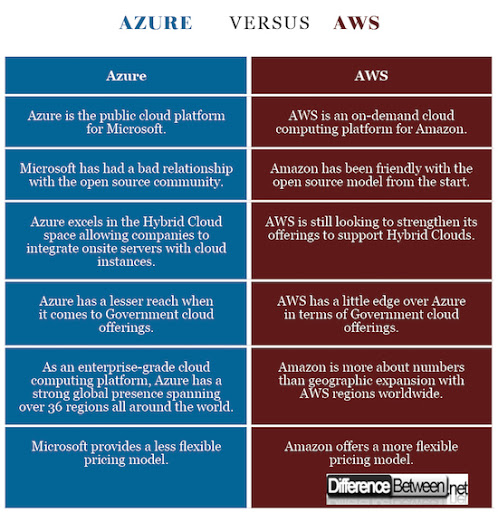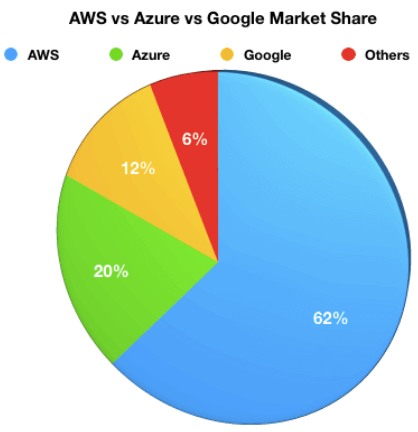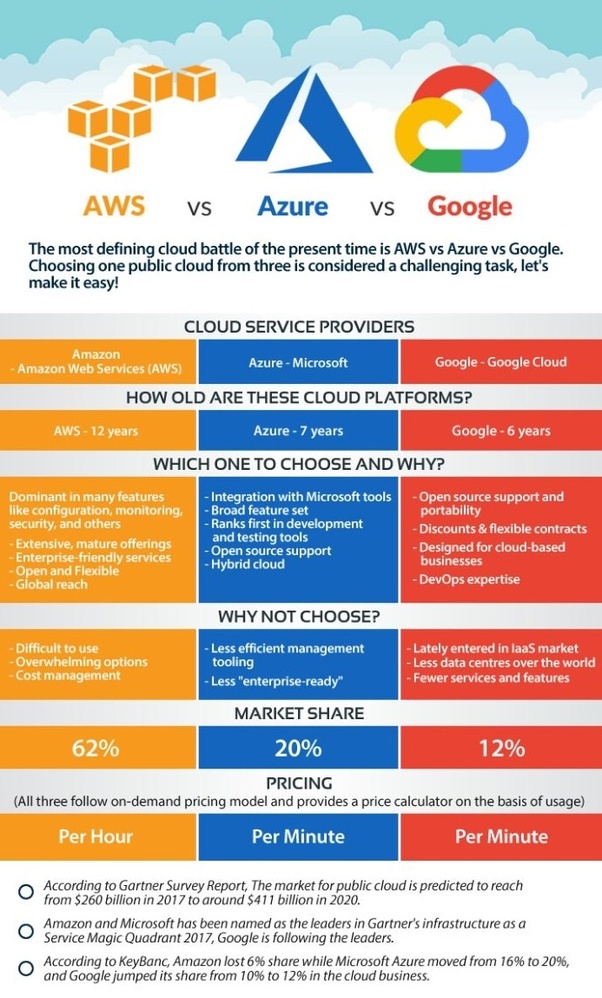www.otava.com/reference/aws-vs-azure-key-differences/
www.edureka.co/blog/aws-vs-azure/
www.quora.com/What-are-the-major-differences-between-AWS-Azure-and-Google-Cloud
Google usually gives the biggest bang for your buck, but is not strong in all fields.
Azure will probably fit best if you are already using a lot of Microsoft products and Windows.
AWS is most mature, has the most flexibility, the best console, but it’s VM’s are less powerful or just more expensive
Amazon AWS
– Offers the most infrastructure as a service offerings such as low level computing (EC2), storage (S3), VPC (networking), database (RDS) with support for various operating systems (Windows, Many Linux flavors) with a vast 3rd party marketplace called AWS Marketplace where vendors provide their add-ons.
– Pioneer for serverless computing with Lambda, and now Fargate/Elastic Kubernetes Service.
– While Amazon has more product and feature offerings, it requires professional setup to operate & maintain. AWS gives you building blocks, it is up to you to build it together.
– According to Marketing Intelligence for Cloud Service Providers | Intricately there are over 1MM customers making it one of the most popular computing platforms to date: Intricately
– Price is similar to Microsoft
Microsoft AZURE
– Supports both Windows & Linux workloads, with a very deep integration into Microsoft’s developer ecosystem with Visual Studio, .NET etc. If you are an MSFT developer, Azure is an easy way to get your application deployed.
– Price is similar to AWS
– The newest entrant to the market, offers mostly Platform as Service offerings like Machine Learning as a Service, Kubernetes as a Service etc. However, Google does not offer as many product offerings.
– Google pioneered Kubernetes and is the leader in terms of delivering a truly managed Kubernetes experience
– Price can be cheaper than AWS and Microsoft due to the PaaS nature of the product, may require less building.







